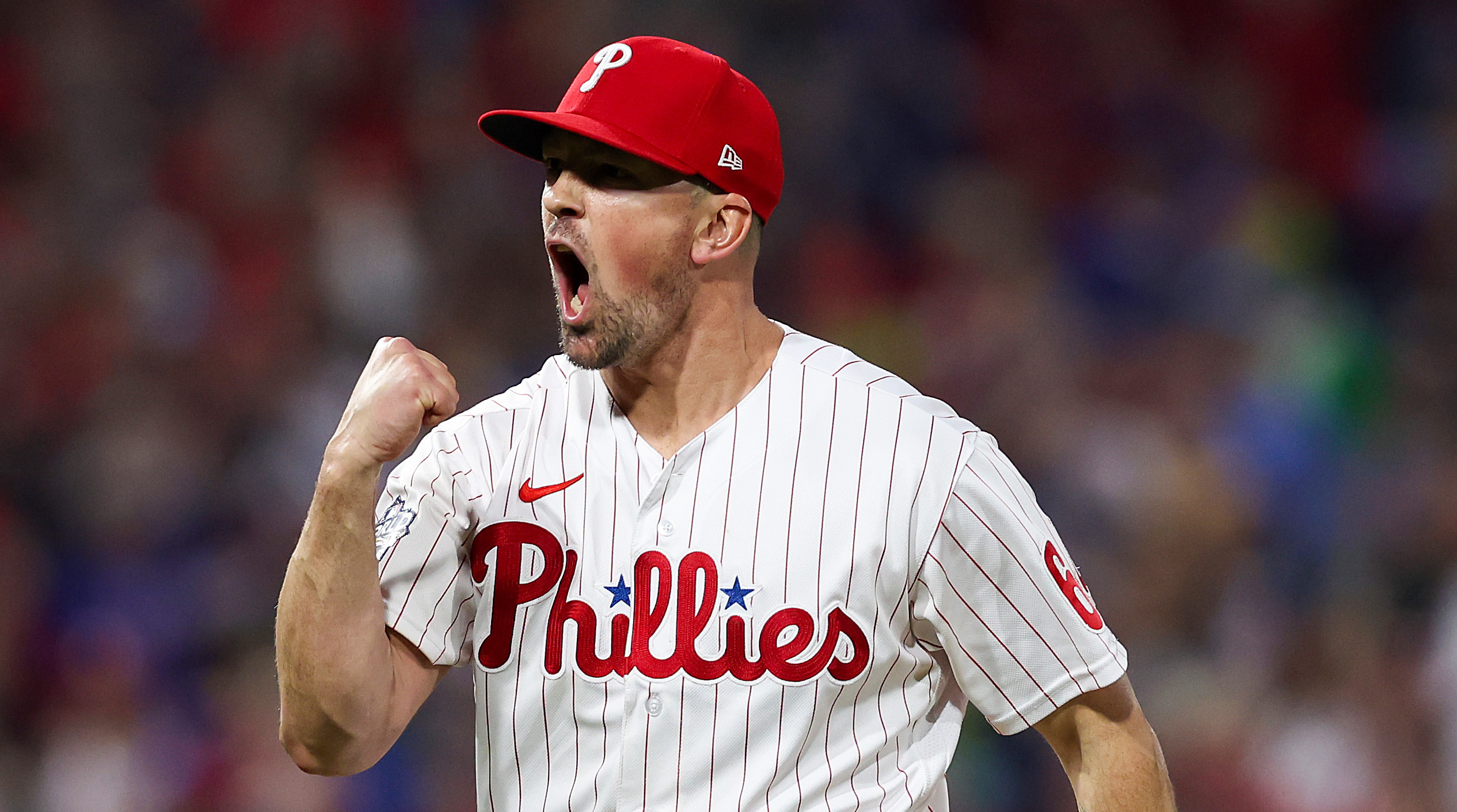The Phillies Erase the Astros’ Most Obvious World Series Advantage
PHILADELPHIA — Entering this World Series, if there was one especially obvious mismatch, it was the pitching depth.
The Astros had one of the best staffs in baseball, with rotation and bullpen alike enviably stacked, resulting in a 134 team ERA+. The Phillies, meanwhile, had … not that. Their best pitchers could certainly go toe to toe with the Astros’. But the depth simply was not comparable. That was put on full display in Game 1: The Phillies turned to one of their best relievers, José Alvarado, in the fifth inning, which meant that by the seventh, they needed to start pulling from their rotation. It worked. But it felt telling: This was the kind of aggressive maneuvering it would take for this pitching staff to win a World Series.
Or not. The Phillies flipped that formula on its head to win Game 3. They came out slugging and kept slugging some more. They got five scoreless innings from No. 3 starter Ranger Suárez. And then they turned it over to their bullpen—the rest of their bullpen. The Phillies did not use a single one of their high-leverage arms. Alvarado? Seranthony Domínguez? David Robertson? Not tonight. Instead, Philadelphia walked away with two victories in one: They got both a 7–0 win over Houston and an extra day of rest for their best relievers.
“That’s massive to be able to get a win and not use those guys,” says Phillies catcher J.T. Realmuto. “But also just our entire bullpen … we have a lot of confidence in everybody we're bringing in the game right now. No matter the situation, guys have answered.”

It feels like a potential inflection point. If the mismatched pitching depth seemed like a key to the series a few days ago, well, now it barely feels real. Some of that is luck: Monday’s rainout couldn’t have come at a better time for the Phillies, allowing them to use Suárez in Game 3 rather than Game 4, which meant pushing an expected bullpen day back to Game 5. There’s also the fact that Astros manager Dusty Baker has been puzzlingly late to turn to his own talented relievers. (A depth advantage isn’t very useful if a team doesn’t actually use it.) Yet the rest is simply performance. Yes, Philly’s hitters gave the back end of their bullpen an impressive, sizable lead on Tuesday. But that group did more than simply protect that lead. They kept the game a shutout—which falls partially on the Astros hitters, of course, but it’s also a credit to the Phillies ‘pen. If there’s supposed to be a lack of depth here? No one told them.
After Suárez’s five scoreless frames, Philadelphia got an inning apiece from Connor Brogdon, Kyle Gibson, Nick Nelson and Andrew Bellatti.
That group allowed a combined four baserunners. And, sure, they know they’re the B-squad. (That much has been clear all season.) But that adds motivation instead of taking it away: They saw their job on Tuesday as protecting the A-team.
“They’ve done a lot of work this postseason,” Nelson says of Alvarado, Domínguez and Robertson. “So to give them another day off, it’s huge for the bullpen.”
This was Nelson’s first appearance this postseason, though he did pitch twice in the 2020 American League Championship Series with the Yankees. (He has been on the roster only intermittently.) For him to get the ball in the eighth inning of a World Series game for the Phillies, the situation could only be very, very bad or very, very good. It was emphatically the latter.
That was only possible, of course, thanks to a big lead from this offense. Bryce Harper, Alec Bohm, Brandon Marsh, Kyle Schwarber and Rhys Hoskins all homered on Tuesday—by the end of the fifth inning. (Yes, that’s the leadoff man, the No. 9 hitter, and a bunch of guys in between.) This tied the record for most home runs in a World Series game; it seemed like fulfillment of the ultimate destiny for a roster that was built to slug. And it put them in an enviable position for the rest of the series.
They have No. 1 starter Aaron Nola on the mound for Game 4. That will be followed by a bullpen day led by Noah Syndergaard for Game 5 and, if needed, a start by Zack Wheeler in Game 6—with their top relievers now well-rested and ready to do as much as needed.
“We’re always in good hands when [Nola] is on the mound, so you’re not expecting to use the bullpen too much,” Brogdon says. “But the next day … having Alvarado, Seranthony, everybody like that fresh, I think it’s huge.”
The Phillies now have a 2–1 series lead. But more than that: They look very much in control.
“It’s just a fun thing,” Hoskins said of the environment they felt Tuesday from their hitters and pitchers and fans alike. “And we’ve been having a lot of fun.”
Full World Series Schedule: TV coverage and streaming.
More MLB Coverage:
• Inside the Dazzling Defense of Defensive Liability Nick Castellanos
• How the Phillies Figured Out Lance McCullers Jr.
• Three World Series Questions for Games 3 Through 5
• Homers, Handshakes and Hoskins: The Long Road to the Series
• Philadelphia: Welcome Home, Chas McCormick. We Hope You Lose.
